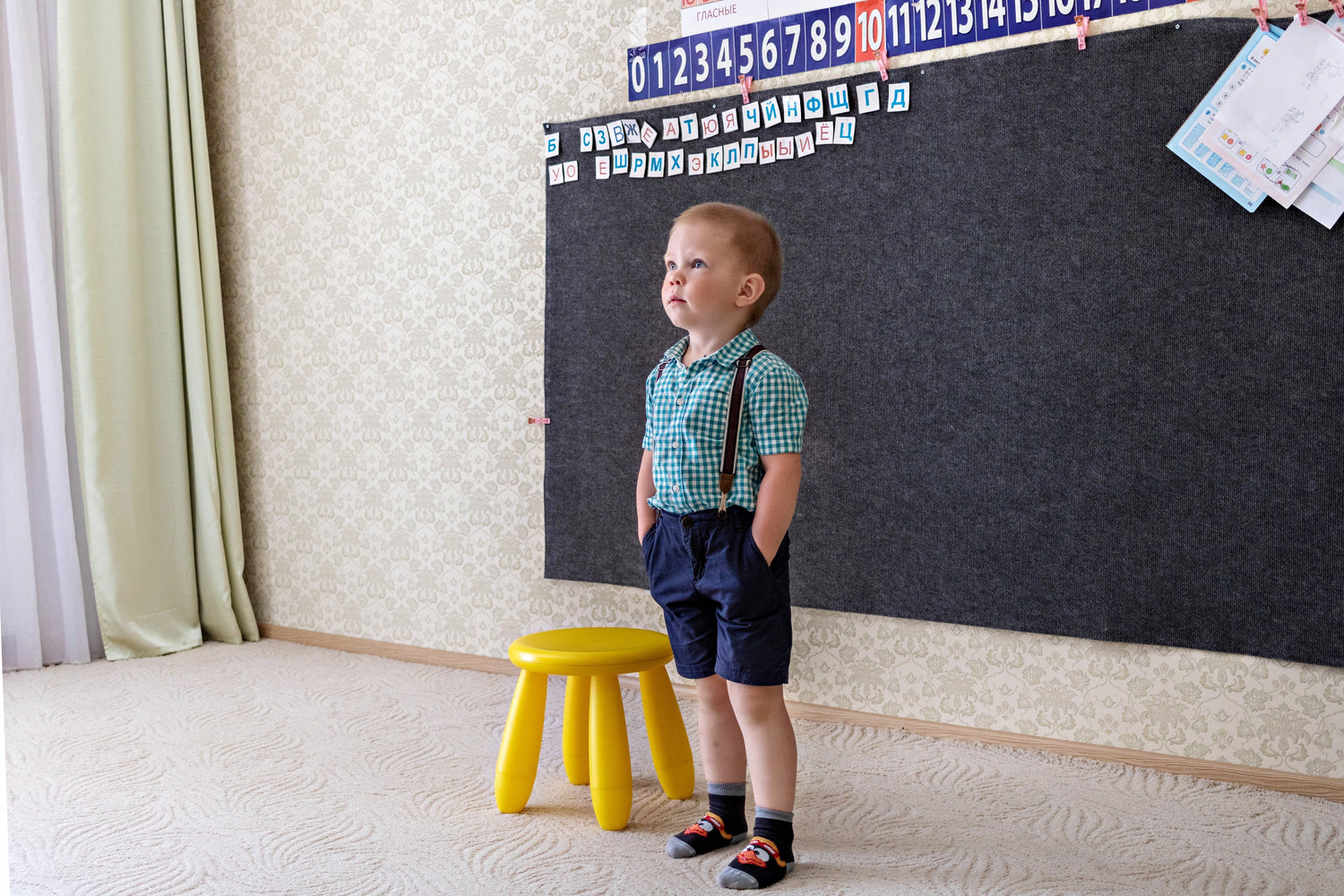Author: Alice Robins
Starting preschool is a major milestone — not just for children, but for parents too. It’s completely normal to wonder, “Is my child really ready for this next stage?”
The good news is that preschool readiness isn’t about having every skill perfectly mastered. It’s about being on the path toward independence, curiosity, and social connection. In this blog, we’ll help you understand what preschool is, how readiness is measured, and how you can support your child during this important transition.
What Is Preschool?

Preschool (sometimes called nursery or pre-kindergarten) is an early education setting for children aged roughly 2 to 5 years. Its purpose is to prepare young children for school by encouraging development through play, routine, and social interaction.
Many preschool settings follow the EYFS (Early Years Foundation Stage) framework, which supports development from birth to age 5 across key learning areas. It focuses on the key areas that help children grow, thrive, and prepare for formal schooling in a natural, play-based way.
EYFS Milestones and Areas of Learning
These seven areas of learning and development are what early years settings — like nurseries and preschools — use to support each child’s individual journey. They’re not a checklist for entry into preschool, but rather a roadmap for what children may begin exploring during these years.
Prime Areas (Focus on building core life and learning skills)
1. Communication and Language

Helping children develop listening, understanding, and speaking skills through stories, songs, conversation, and play.
2. Physical Development

Encouraging both fine motor skills (like holding crayons or using utensils) and gross motor skills (like running, jumping, and climbing), along with self-care skills such as dressing or toileting.
3. Personal, Social, and Emotional Development

Supporting children as they learn to build friendships, express emotions, become more independent, and feel confident in new environments.
Specific Areas (Build on the foundation of the prime areas)
4. Literacy

Introducing a love for books, sounds, letters, and mark-making that can later support reading and writing.
5. Mathematics

Exploring numbers, counting, shapes, patterns, and simple problem-solving through play and hands-on activities.
6. Understanding the World

Helping children make sense of their surroundings by exploring people, places, nature, technology, and different cultures.
7. Expressive Arts and Design

Encouraging creativity and self-expression through music, art, dance, role-play, and imaginative activities.
Children will begin developing skills in these areas at their own pace, and preschool is the place where that learning happens — not where it must already be complete.
How to Find the Perfect Preschool
Choosing the right preschool is an important step and depends on several factors. Start by visiting a few settings to observe how teachers interact with children and how your child responds to the environment. Asking about teacher qualifications, communication with parents, and how they support transitions can also help you decide. Trust your instincts and choose the preschool where you and your child feel comfortable and confident. It’s important to look at the preschool’s curriculum and daily routine to see if they align with your family’s values and your child’s learning style. Many preschools follow the EYFS framework, which focuses on learning through play and supports development across key areas (explained above). Others may use alternative approaches like Montessori or Reggio Emilia, which offer different philosophies to encourage independence, creativity, and exploration.
Montessori programs emphasize self-directed learning and hands-on activities, encouraging children to explore at their own pace. Reggio Emilia focuses on creativity and collaborative projects, where children’s interests guide the learning process. Both approaches offer unique ways to support early development beyond traditional play-based learning.
Is Your Child Preschool Ready?

Now that you understand what preschool involves, let’s look at the signs of readiness. Here's a practical checklist broken into key areas:
Social & Emotional Readiness
● Can your child separate from you with minimal distress?
● Are they interested in other children?
● Do they express feelings in simple ways?
💬 Communication Skills
● Can they follow simple instructions?
● Are they beginning to use short sentences or ask questions?
● Can they express basic needs (e.g., “I’m thirsty” or “I need help”)?
Self-Help Skills
● Are they showing progress with toilet training?
● Can they eat with minimal help?
● Do they attempt to dress or undress with assistance?
Cognitive & Focus Skills
● Do they enjoy stories or imaginative play?
● Can they recognize some colors or shapes?
● Are they able to sit and focus on an activity for a few minutes?
Preschool Readiness Is a Journey, Not a Destination
It’s important to know that no child is 100% ready — and that’s perfectly fine. Preschools are designed to meet children where they are developmentally and help them grow. If your child needs extra time or support in certain areas, that’s completely normal.
“The goal of preschool is to help children become ready, not expect them to be ready from day one.”
How to Support Preschool Readiness at Home

- Create predictable routines — mealtimes, playtime, and quiet time help children feel secure.
- Practice short separations to help with transition and build trust.
- Encourage independence in small ways (tidying toys, putting on shoes).
- Read books about starting school, like “Llama Llama Misses Mama.” Or "Maisy Goes to Nursery"
Common Parent Concerns (And Why They’re Okay)
“My child cries at drop-off.”
This is common! Most children adjust after the first few days or weeks.
“They’re shy and don’t talk much around others.”
That’s fine — preschool helps build social confidence gradually.
“They’re not fully potty trained yet.”
Check with the preschool — many offer support during this phase.
“What if my child doesn’t know letters or numbers yet?”
That’s okay — preschool is where those early skills are introduced. There's no need for your child to know them before starting.
“My child doesn’t like sharing or taking turns.”
That’s completely normal at this age. Preschool helps children learn social skills like sharing through guided play and gentle routines.
Final Thoughts: You Know Your Child Best

Preschool is the beginning of a beautiful new chapter. While developmental benchmarks help guide us, your intuition matters most. If you feel your child is ready to begin exploring the world beyond home, even with a few wobbles, they likely are.



